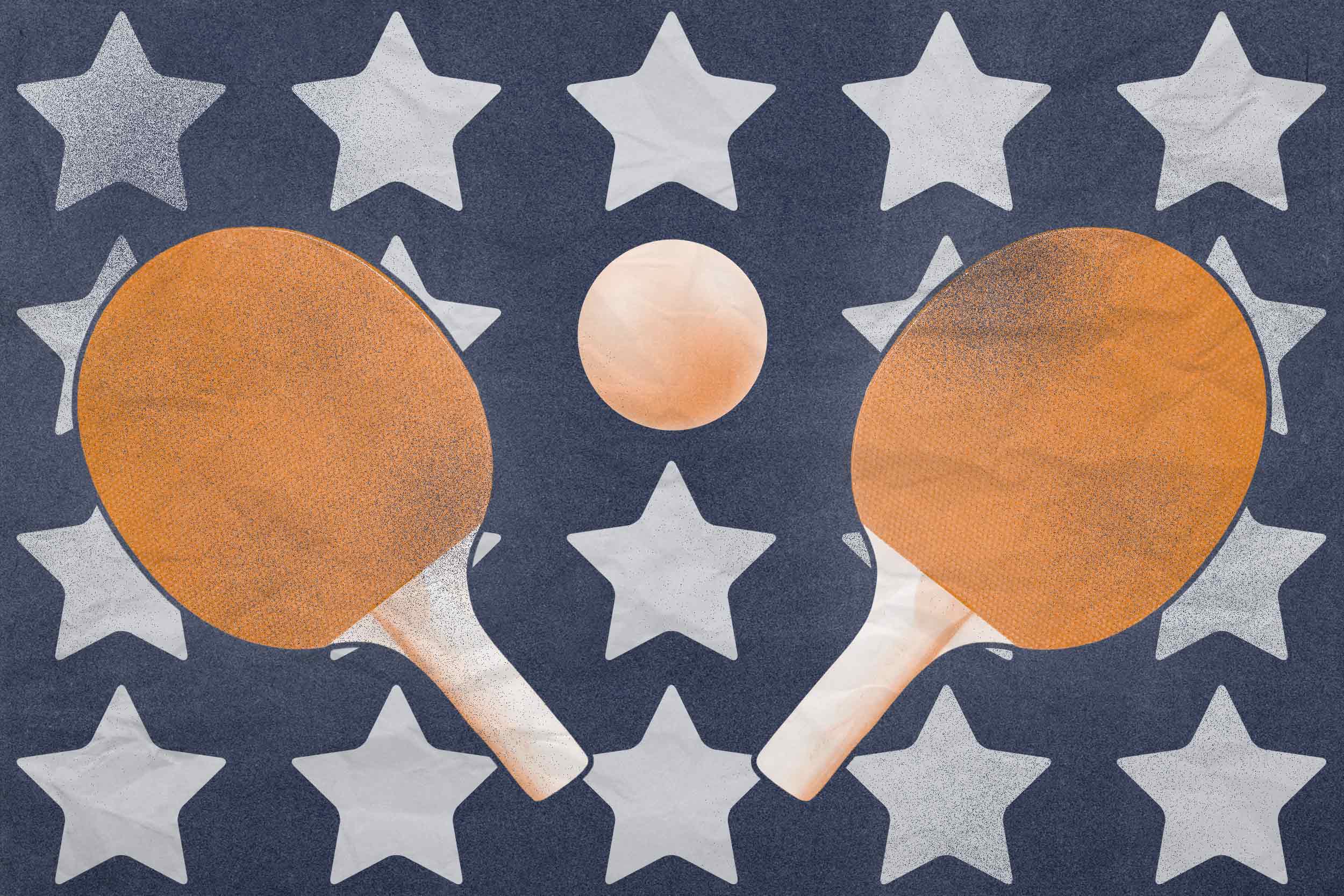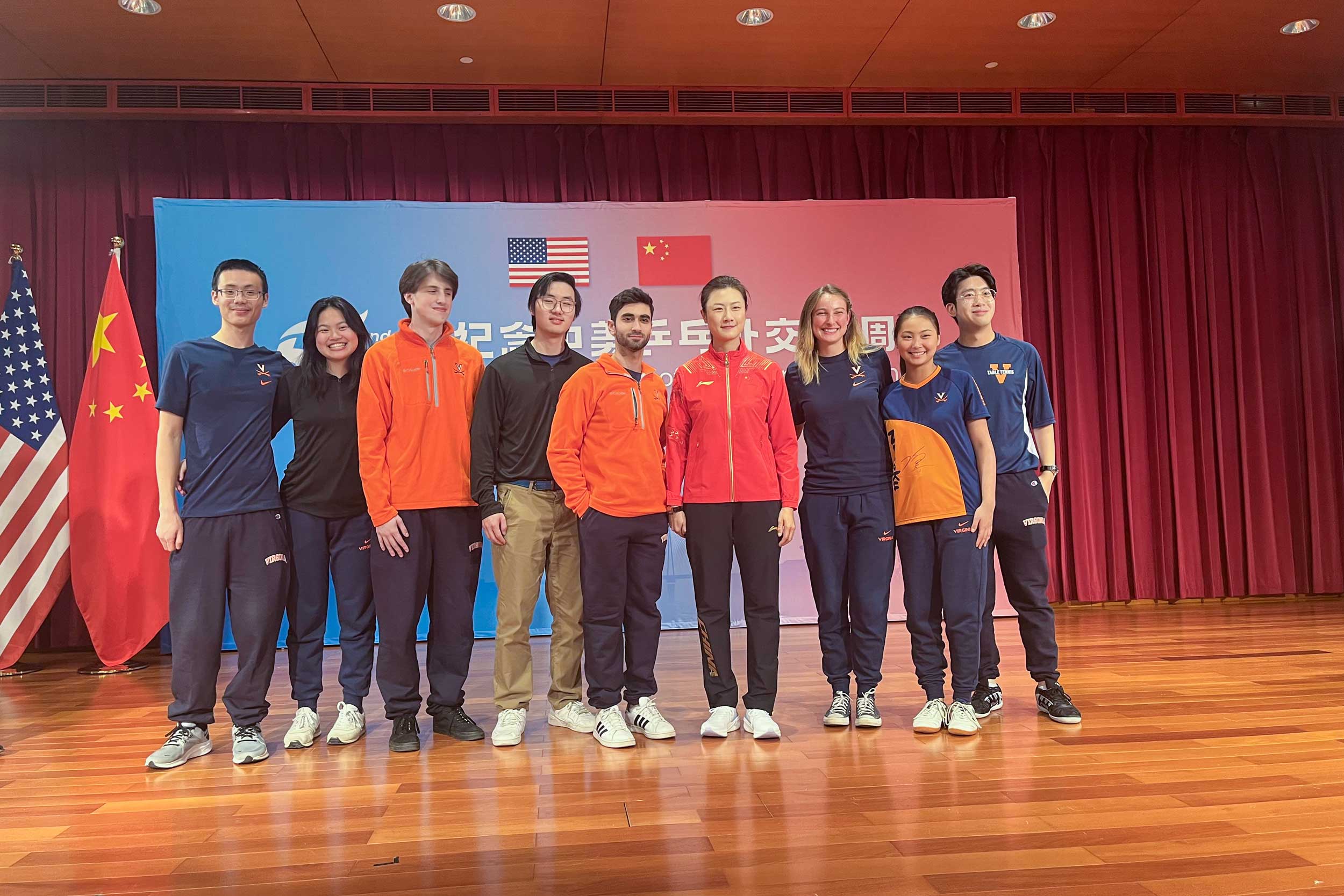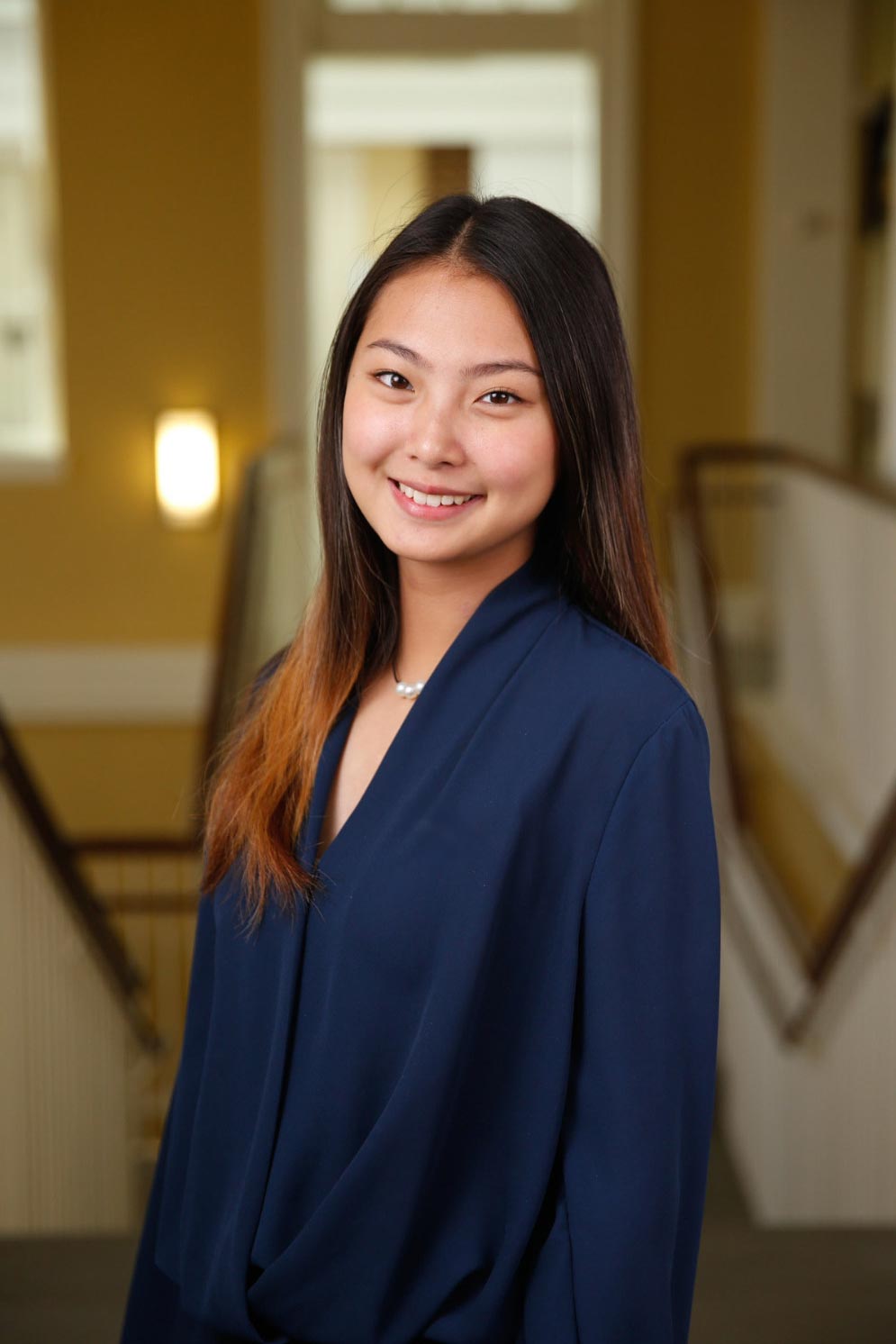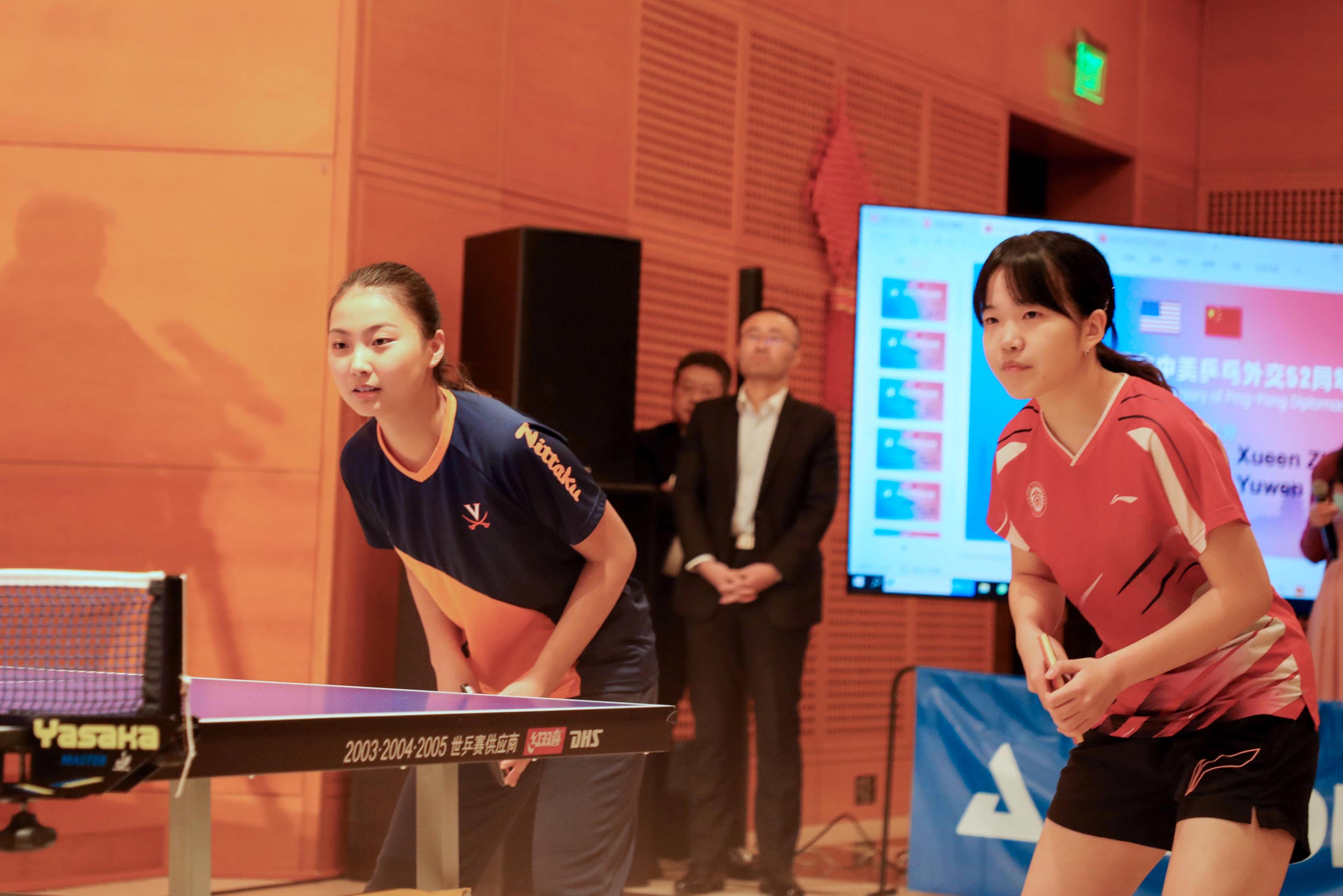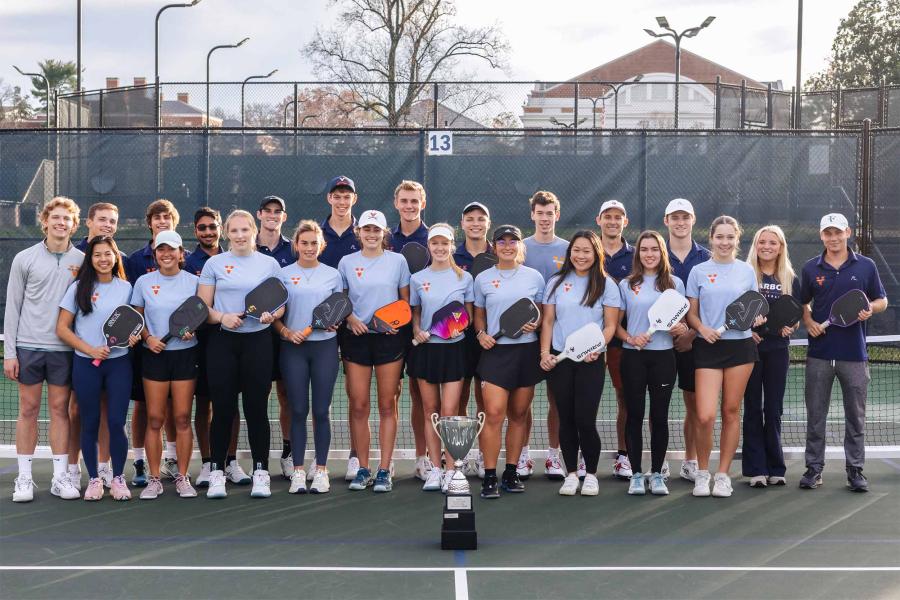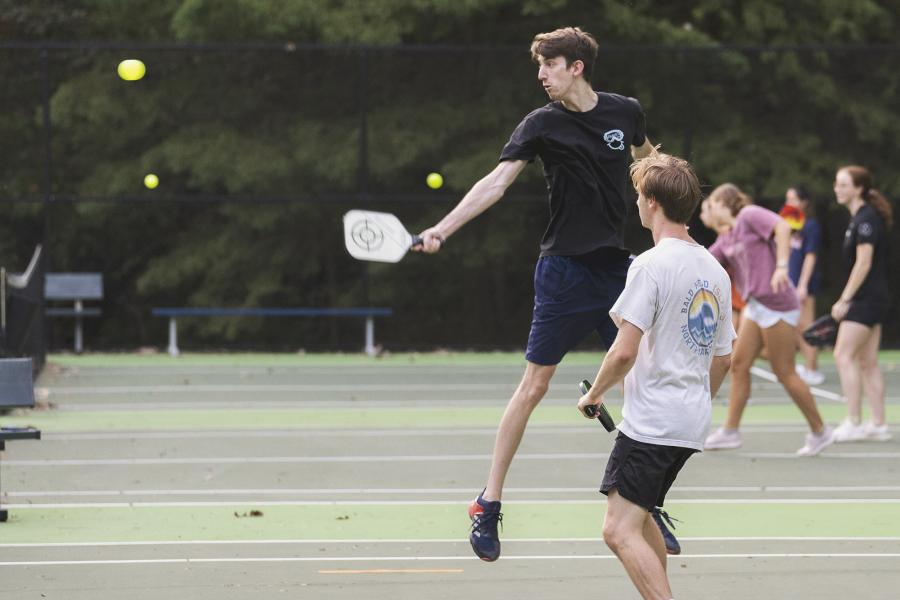Lu and her fellow classmates are recreating that diplomatic trip, paddles in hand. For Lu, the trek will have additional meaning. She was born in China and raised in the United States. She’s been playing table tennis, China’s national sport, since she was 8, and even though she was born more than three decades after the international event, her family’s involvement in the sport meant she knew all about that fateful bus mix-up.
“It was how China and America kind of resolved their issues, through this diplomacy,” she said.
The 12-day trip is part of a UVA January Term course called “Game Change: Bridging the U.S.-China Divide Through Sport.” The course “will give our students their own shot at pingpong diplomacy and developing a better understanding of current issues between the United States and China,” UVA Vice Provost for Global Affairs Stephen Mull said.
Mull is teaching the course along with Justin O’Jack, director of the UVA China Office. The tour will include several destinations visited by the 1971 team, lectures, visits to cultural sites and friendly matches with Chinese university students.
To Lu, there is something about table tennis – or pingpong to occasional players – that lends itself to diplomacy.
“A tennis court is super big, right? So, you can’t really yell across the court to talk in tennis,” Lu said. “While in table tennis, you’re probably just six feet away from each other. You can talk and play at the same time. It can be intense if you want it to be, or it can be a very casual sport as well.”
The traveling Wahoos will also meet UVA alumni and parents from China in events hosted by UVA clubs there.
“The UVA family in Greater China is eager to welcome our students and spend time with them,” O’Jack said. “Learning about the power of sports in diplomacy by participating in matches with some of the top Chinese universities is a unique opportunity for the students.”
The trip will begin in Hong Kong and end in Shanghai.
“Getting to meet students from China, talking to them, and getting to play table tennis with them is a chance of a lifetime,” Keane Tao, a first-year student in the School of Engineering, said.
